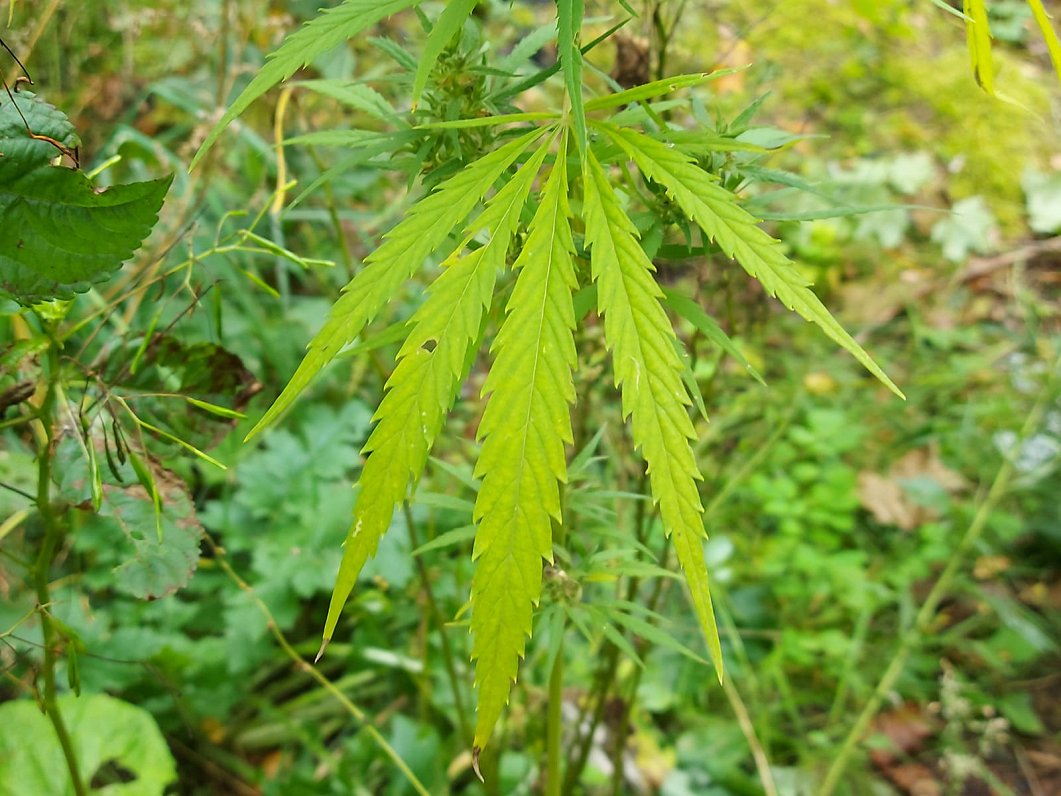At the parliament, discussions have resumed at sub-committee level on whether more severe punishments discourage drug use. Statistics show that there is a growing number of cases where a person is repeatedly punished for drug use.
For this reason, it is being debated whether there is a need for change to the system of penalties: to impose administrative sanctions on the storage and use of soft drugs instead of criminal penalty, as it has been before.
Marijuana is one of the drugs for which offenders are punished most often. To date, storage and/or use of it has been subject to administrative penalties. On the other hand, if the infringement is repeated, then criminal charges follow: a fine or even a temporary deprivation of liberty.
Data show that repeated drug punishments are very frequent. This reflects the fact that if a person has an addiction, the punishment does not bother them. Last year, for example, one person was even fined 15 times administratively.
The Criminal Law Policy Sub-Committee of the Saeima Legal Affairs Commission has discussed the issue for a long time, whether punishment can help the person to get out of addiction.
At the meeting of the sub-committee, Andrejs Judins (“New Unity”) stated that the matter had been put aside last year, but it should not be postponed now. “I think it's good that we're starting to talk about it because the issue is not so simple. And to think that the punishment will cure someone and deter them from drugs – it is not quite justified,”Judins said.
The sub-committee discussed whether the decriminalization of small-scale soft drugs should be considered. That would mean that substances would still be illegal, but there would be no criminal liability for consuming them in small quantities.
MP Artūrs Toms Plešs supports marijuana decriminalization because, in his opinion, punishment doesn't always address the problem. He believes that this issue should be viewed from a health point of view, since the causes of drug use are often psychoneurological. This means that there is a need for treatment, not punishment.
“Number one argument is that, in reality, simply with punishment, we don't address that problem. We just briefly sweep it under the carpet. But what has been shown by different world experiences, including in neighboring Estonia, is that if we change focus more on treating people, it gives positive results. People do not use these banned substances in the long term. There are fewer HIV victims and similar trends that have a positive impact on overall public health,” said Plešs.
Latvia is also starting to move from punishment to rehabilitation. This is reflected in a Cabinet order, by which last summer the matter was directed from the Ministry of Interior under the responsibility of the Ministry of Health. Its focus from punishment is slowly shifting to health care, social rehabilitation and social inclusion.
Looking at other European countries, Estonia is mentioned as an example in the discussion, where drug users are not threatened with criminal penalties if they undergo a rehabilitation course voluntarily. If they do not agree, then criminal liability may be held.
Inga Birzniece, spokeswoman for the Ministry of Health, commented positively on this example: “Most countries now go in the direction of either administrative sanctions or treatment or rehabilitation. But it must be mentioned at once that the rest of the system must be prepared accordingly.”
However, she assumes that the number of users may increase at the beginning, so the healthcare system needs to be prepared in good time.
Astrīda Stirne, head of the Narcological Assistance Service of the Riga Psychiatric and Narcology Centre, supports the idea that sick people should not be punished but rehabilitated. It is a job not only for narcologists, but also for psychologists and the general public.
She said that the system already exists, but not everyone is seeking help.
“I believe it should nevertheless be decriminalized in those cases where it is really only about use. We should give them a chance to be treated. If one doesn't accept it and doesn't agree, then of course it's criminal responsibility,” Stirne said.
On the other hand, if the use of marijuana is decriminalized entirely, the narcologist expects the number of users to increase.
In her opinion, early prevention should be carried out: pupils should be educated on this subject. It is also necessary to think about medical treatment so that it is financially available.
Another argument in favor of decriminalization of marijuana is police resources. That way, police could devote time to criminal investigations that require more resources.
Ministry of Interior spokeswoman Agnese Zīle-Veisberga looks negatively at this issue because, firstly, drug use will become more apparent, secondly, there could be an increase in the number of users. It could be followed by a scenario that the police would sentence administrative violations to people even daily Meanwhile, penalties won't even be paid because not everyone can afford it.
The Saeima deputy, Jūlija Stepaņenko, is also opposed to this initiative. She believes that the penalties should even be reinforced: “I think that the punishment does, however, deter [people from using drugs] and to try now to classify hard from soft and for what there should be punishments, would not be right. Firstly, of course, it is a negative signal to the public that we really do not cope with this problem. Secondly, it is not right from the point of view of the rule of law.”
The panel's chairman, Judins asked the Justice Department at the level of the working groups to discuss the matter. About two months later, the sub-committee could continue discussions and begin talking about further steps.




























